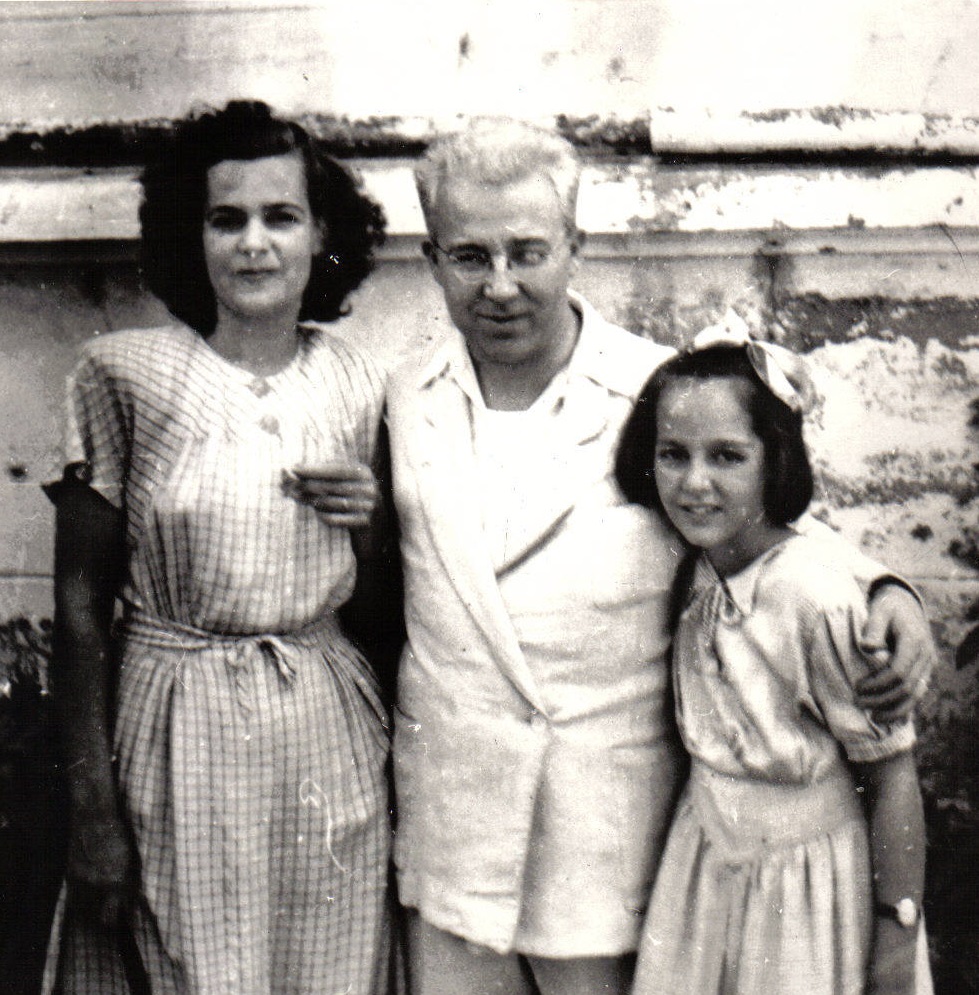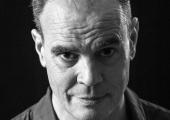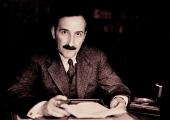I was 11 years old when my father was killed. A body was found near the border between Turkey and Bulgaria. According to authorities it belonged to my father even though the corpse was decomposed beyond recognition. My mother and his mother were not summoned to identify the body. This tragedy happened in 1948. We still don’t know where he was buried. Therefore he does not have a grave. My mother and I waited for him for years hoping that he might appear one day. My mother died in 1999.
Sabahattin Ali was a well-known writer who had already published a volume of poetry, four volumes of short stories and three novels between 1935 and 1945 as well as numerous articles published in periodicals, newspapers, magazines and was the editor and owner of a very popular political-satirical newspaper called Marco Pasha. (Pictured below: Sabahattin Ali's Madonna in a Fur Coat)
 He was born in 1907 in a town called Egridere, which used to be part of the Ottoman Empire, where his father was the Commander of the Ottoman Army Headquarters during the disastrous defeat of the Balkan War. It is now in Bulgaria and called Ardino. As a child of one war after another, Sabahattin Ali didn’t have much of a happy family life. When he was 12 years old, he was sent to a boarding Teachers’ School where he started to compose his first poems which were published in provincial literary magazines.
He was born in 1907 in a town called Egridere, which used to be part of the Ottoman Empire, where his father was the Commander of the Ottoman Army Headquarters during the disastrous defeat of the Balkan War. It is now in Bulgaria and called Ardino. As a child of one war after another, Sabahattin Ali didn’t have much of a happy family life. When he was 12 years old, he was sent to a boarding Teachers’ School where he started to compose his first poems which were published in provincial literary magazines.
The young Turkish Republic was desperately in need of educators. The country has lost a whole generation of its best people during endless wars. In 1925 an Education Abroad program has been put into effect. Sabahattin Ali was one of the chosen students sent to Germany to learn the language. Between 1928 and 1930 he spent two years in Berlin and Potsdam where the political and artistic climate of the Weimar Republic was at its pinnacle. While in Germany it seems that he was artistically, politically and intellectually reborn.
He returned to Turkey with a political awareness leaning toward Marxism and socialism. This was obviously not what the new regime expected from him. During the first years of his teaching career he was accused of inciting subversive political ideas among his students, arrested more than once and sentenced to a year in prison for a poem he allegedly wrote criticising the leader of the regime.
 When he was free again he decided to get married and start a new, tame and tranquil life. My mother was an ideal choice for a man who was seeking tranquillity. They married in 1935 and I was born in 1937. We were a happy family as long as it lasted. (Pictured: Filiz Ali with her parents in a prison courtyard in 1947, after Satahattin Ali was arrested for criticising President Atatürk.)
When he was free again he decided to get married and start a new, tame and tranquil life. My mother was an ideal choice for a man who was seeking tranquillity. They married in 1935 and I was born in 1937. We were a happy family as long as it lasted. (Pictured: Filiz Ali with her parents in a prison courtyard in 1947, after Satahattin Ali was arrested for criticising President Atatürk.)
My father was a gentle man with endless energy who talked, walked and wrote faster than anybody I know. He didn’t need solitude for reading or writing. He would read and write anywhere, any time. Even though he was frequently the life of a party, being very funny, a good mimic, imitating comic characters, telling hilarious stories, jokes, singing funny songs, he had moments of closing himself to the outer world like a clam as well. But his curiosity and hunger for knowledge was phenomenal. I am thankful that he is being rediscovered by a whole new generation now.
Overleaf: read the opening of Madonna in a Fur Coat




 He was born in 1907 in a town called Egridere, which used to be part of the Ottoman Empire, where his father was the Commander of the Ottoman Army Headquarters during the disastrous defeat of the Balkan War. It is now in Bulgaria and called Ardino. As a child of one war after another, Sabahattin Ali didn’t have much of a happy family life. When he was 12 years old, he was sent to a boarding Teachers’ School where he started to compose his first poems which were published in provincial literary magazines.
He was born in 1907 in a town called Egridere, which used to be part of the Ottoman Empire, where his father was the Commander of the Ottoman Army Headquarters during the disastrous defeat of the Balkan War. It is now in Bulgaria and called Ardino. As a child of one war after another, Sabahattin Ali didn’t have much of a happy family life. When he was 12 years old, he was sent to a boarding Teachers’ School where he started to compose his first poems which were published in provincial literary magazines. When he was free again he decided to get married and start a new, tame and tranquil life. My mother was an ideal choice for a man who was seeking tranquillity. They married in 1935 and I was born in 1937. We were a happy family as long as it lasted. (Pictured: Filiz Ali with her parents in a prison courtyard in 1947, after Satahattin Ali was arrested for criticising President Atatürk.)
When he was free again he decided to get married and start a new, tame and tranquil life. My mother was an ideal choice for a man who was seeking tranquillity. They married in 1935 and I was born in 1937. We were a happy family as long as it lasted. (Pictured: Filiz Ali with her parents in a prison courtyard in 1947, after Satahattin Ali was arrested for criticising President Atatürk.)



